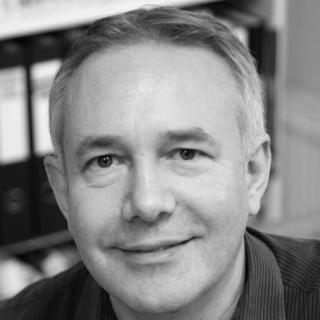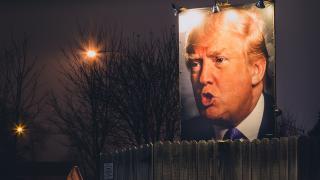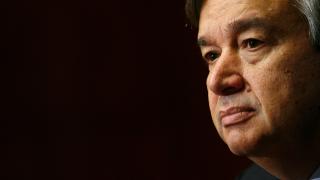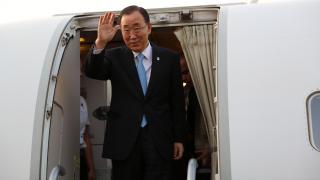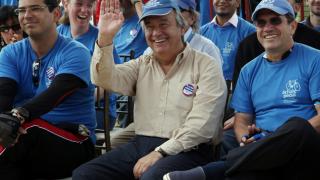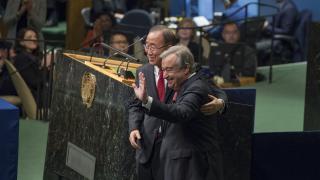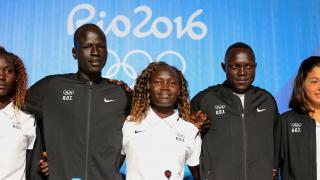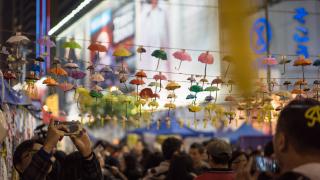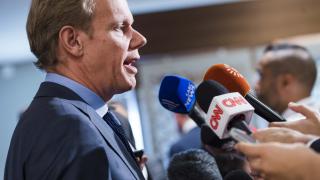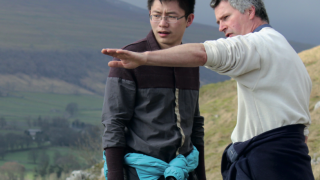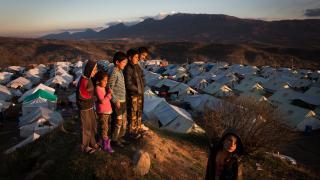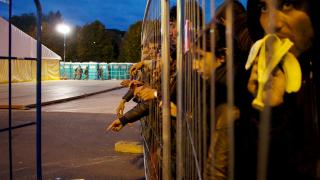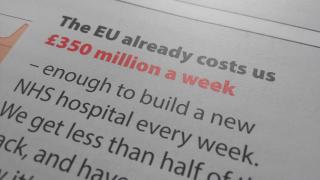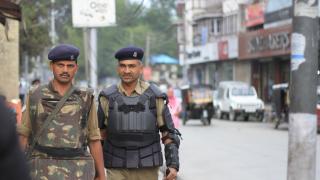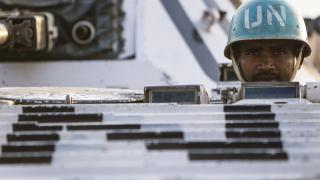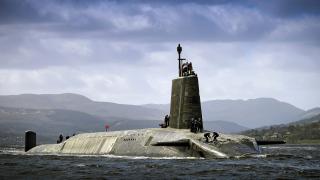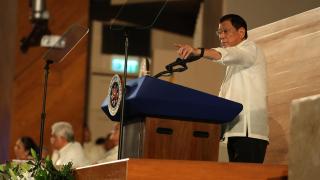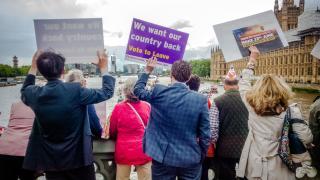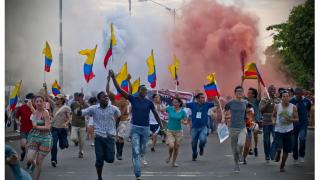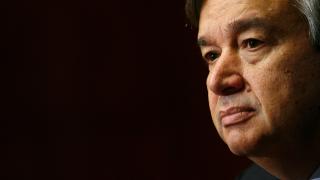
António Guterres’ appointment defied expectations since he is neither female nor Eastern European. After eight male Secretaries-General, many UN commentators had called for a woman to be selected for the UN’s top job. Others, particularly from Eastern European countries fielding candidates, claimed it was their region’s “turn”.
Guterres prevailed for reasons of performance and politics. The UNA-UK-inspired 1 for 7 Billion campaign helped secure a more transparent auditioning process. Candidates submitted CVs and vision statements before being publicly grilled for two hours by the UN’s members. This showcased Guterres’ ability to perform under pressure, his sophisticated grasp of international affairs, and his extensive relevant experience. He benefited from the fact that the most experienced female contenders – Helen Clark of New Zealand and Susana Malcorra of Argentina – were also from outside Eastern Europe.
Political factors ultimately sealed Guterres’ victory. As well as being Prime Minister of Portugal, he served six years as President of the Socialist International. He thus appealed to the West as a NATO- and EU-country national, whilst Russia and China liked that he was of the left and worried that if the race were to run on, states might coalesce around an Eastern European candidate who was right of centre politically – such as Kristalina Georgieva, a belated Bulgarian nominee, who had overseen EU sanctions on Russia.
Guterres also had strong developing-country backing. Latin America warmed to a candidate who could speak Spanish and Portuguese, while Angola, Mozambique and Guinea-Bissau galvanised support beyond Lusophone Africa. The G77 group of developing countries has long complained that nearly three decades after the Cold War’s end, UN bodies still reserve separate seats for the ’Eastern European’ and ‘Western European and Others’ groups. They hoped the precedent of Guterres’ appointment would erode this convention. Choosing a fourth (out of nine) Secretary-General from Western Europe also makes it unlikely that there will be another appointment from that region for the next half-century.
Sexism may have played its part, with elderly male ambassadors and foreign ministers key to nominations. While many of us were disappointed that a woman was not chosen, progress has been made. Half the candidates nominated in 2016 were female. Previously, only three women had been formally considered. The Soviet Union proposed India’s Vijaya Lakshmi Pandit in 1953 after Trygve Lie’s resignation from office, Gro Harlem Brundtland of Norway was ‘written in’ on a private Security Council ballot in 1991, and Latvia nominated its President Vaira Vīķe-Freiberga in 2006. I predict that in 2026 a female Secretary-General from Latin America or the Caribbean will be appointed.
Gender aside, the UN has made a superb choice. Guterres has integrity, charisma and political agility – and should serve the international community well. Here are some key challenges and opportunities he will have to navigate:
1. People matter. Guterres must retain and attract dynamic staff. This requires a transformation of UN knowledge sharing, training and managerial systems. He must also identify and cultivate supportive ambassadors and government ministers from diverse member states to ensure governing bodies remain onside as he reforms.
2. Harnessing innovation. Ban Ki-moon has said that this generation is the first in humanity’s history with the capacity to end endemic poverty, and the last with the chance to halt catastrophic climate change. To meet both challenges the UN will need to harness the ongoing revolution in science, technology, engineering and medicine, with human ingenuity transforming the tools available to solve global challenges. A statistics and data revolution is needed to evaluate progress on the Sustainable Development Goals (SDGs), harnessing smartphone technology, social media and crowdsourcing. Guterres will need to adapt the UN’s ambition, structures and ways of working.
3. Resourcing the SDGs and climate action. Foreign investment, remittances, and domestic taxation already dwarf traditional aid as the financial drivers of development. This trend will continue, and with it comes an opportunity for the UN to harmonise the contributions of old and new actors, such as governments, the private sector, NGOs, foundations, city governments and regional organisations. Guiding and providing legitimacy to such diverse partnerships will likely overtake the UN’s own operational delivery. Harnessing trillions in investment for low-carbon and pro-poor renewable energy infrastructure in developing countries is possible if sovereign wealth, pension and insurance funds can de-risk those investments, especially currency exchange risks. The UN, the Bretton Woods institutions, the regional development banks and the new Asian Infrastructure Investment Bank can help unlock such flows.
4. Ensuring the integrity of human rights. Guterres faces an international human rights regime under pressure. Whilst Russia lost its seat on the UN Human Rights Council over Syria, Saudi Arabia was re-elected despite Yemen atrocities. Guterres will have been alarmed by African countries’ attempt to revisit the Council’s appointment of an LGBT rights expert, as well as moves by South Africa and Burundi to withdraw from the International Criminal Court.
5. Migration. Guterres’ passion for humanitarian action will likely permeate his approach in office. He will no doubt advocate for innovative solutions that enable refugees to contribute economically to their host countries without disadvantaging host communities. He is also likely to urge member states to invest in addressing the root causes of forced migration – natural disasters, conflict and climate change.
In times of insecurity, when people feel uncertain about their future, when anxieties and fears are promoted and exploited by political populists, old-fashioned nationalists or religious fundamentalists, the success of the UN and the international community lies in our common commitment to our common values. The UN must be proud of its diversity. A diversity that only enriches the strength of the expression of our common humanity
-- António Guterres, vision statement for the UN
6. Evolving threats. Guterres inherits a UN that has evolved sophisticated and successful conflict management tools. But its response to regionalised conflict, terrorist movements, organised crime and cyber threats, has not kept pace with the transnational and evolving nature of these challenges. Integrating UN development and peace mechanisms to ‘sustain’ peace will require shifts in culture and new incentives for collaboration. The UN must overcome its traditional blind spot to the political economies of conflict. Guterres can encourage a greater Security Council focus on the political objectives of peace operations, and increased investment in mediation and other conflict prevention tools, along with taking forward the recommendations of the Global Study on the implementation of UN Security Council Resolution 1325 on women, peace and security.
7. Changing power realities. The world faces shifting sands in political power. Guterres must manage great power tensions between the US, Russia and China. President Trump’s election will likely lead to a greater US prioritisation of state sovereignty over democracy and human rights concerns. It may lead to a warming of ties between the US and Russia. Whether this paves the way for a settlement in the appalling Syrian civil war, and on what terms, remains to be seen. Guterres must also find ways to accommodate the aspirations of rising powers – such as India, Brazil, South Africa, Indonesia and China – for greater influence on the UN’s direction. China is now the second largest financial contributor to UN peacekeeping and the third largest contributor to the UN regular budget. China also contributes more personnel to UN peace operations than the other Security Council permanent members combined.
8. African agency. There is discontent in Africa with an international system that appears to give scant agency to African countries. Guterres should leave the stalled Security Council reform negotiations to member states, but he can usefully encourage new ways of working that empower the three African members of the Security Council to feel more ownership of Council decisions, and build the capacity of African Union institutions and peace operations.
9. A US shift away from multilateralism. It is unlikely that we will see wholesale US disengagement from the UN. President Trump is likely to relish the opportunities that his speaking slot at the opening of the UN General Assembly’s annual sessions and the US seat on the UN Security Council provide for expressing his vision of US exceptionalism. But he has previously criticised the international regimes for climate change and nuclear non-proliferation. A vital – perhaps the most vital – challenge for Guterres will therefore be to stop an unraveling of the Paris Agreement on climate change, in the light of weakening US support. Trump’s election also increases the need, and the opportunity, for a Guterres-led UN to demonstrate that it is able to mobilise new non-state financial flows to solve global problems.
10. Vision, communication and firmness. Boutros-Ghali often joked that “SG” stood for “scape goat”. Guterres must set, communicate and gain support for realistic expectations of what the UN system can and cannot do. With his wealth of humanitarian experience, Guterres is likely to focus on developing a culture of conflict prevention and economic, social and environmental resilience, placing the protection and empowerment of human beings at the heart of his UN vision. He must – with tact, humility and tenacity – alternately inspire, encourage, scold and embarrass states into living up to their international commitments.
António Guterres has assumed the role of Secretary-General at a time of great flux in world affairs, and he needs our wholehearted support. The United Nations is a unique, precious and potentially fragile experiment in humankind’s recent history. Its continued survival – and I hope flourishing – relies in no small part on our continued public advocacy for strong, credible and effective international institutions and for a fairer, sustainable and more peaceful world.
Sam Daws is Director of the Project on UN Governance and Reform, Centre for International Studies, Department of Politics and International Relations, Oxford University.

